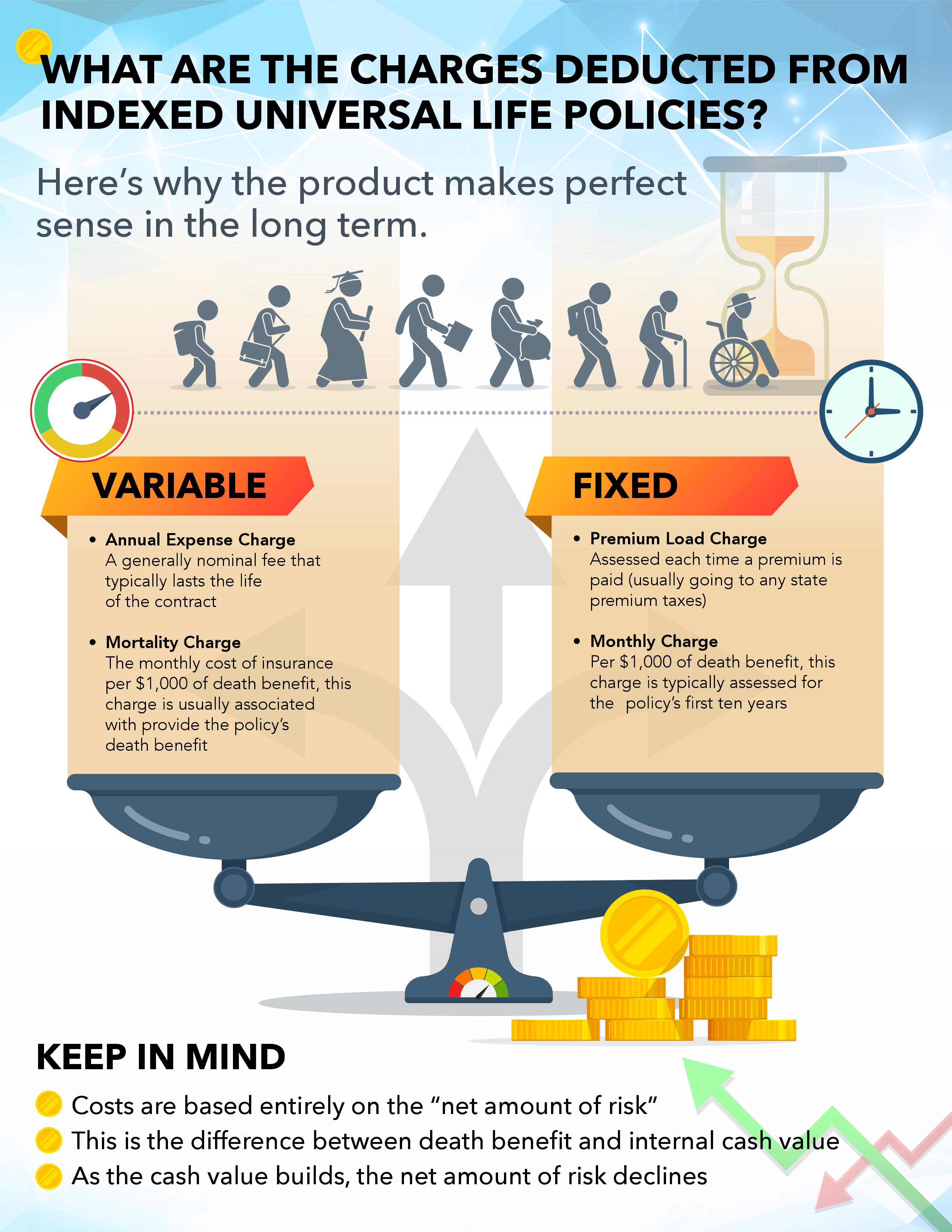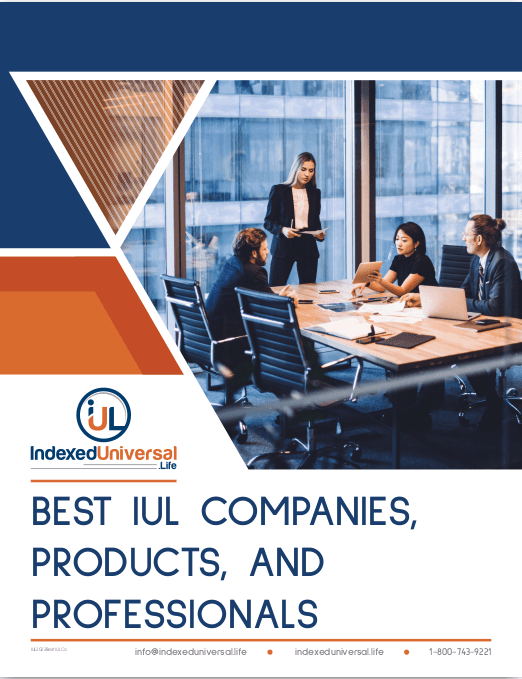All Categories
Featured
Table of Contents
1), commonly in an effort to beat their category averages. This is a straw man argument, and one IUL folks enjoy to make. Do they contrast the IUL to something like the Lead Total Supply Market Fund Admiral Show to no load, an expense proportion (ER) of 5 basis points, a turnover ratio of 4.3%, and an outstanding tax-efficient document of distributions? No, they compare it to some terrible proactively managed fund with an 8% lots, a 2% EMERGENCY ROOM, an 80% turn over ratio, and a horrible document of temporary funding gain circulations.
Mutual funds commonly make yearly taxed distributions to fund proprietors, even when the worth of their fund has actually dropped in value. Shared funds not only call for income reporting (and the resulting annual taxation) when the mutual fund is rising in worth, but can likewise impose income taxes in a year when the fund has actually decreased in worth.
You can tax-manage the fund, collecting losses and gains in order to reduce taxed distributions to the investors, but that isn't somehow going to alter the reported return of the fund. The ownership of shared funds might require the shared fund proprietor to pay estimated tax obligations (what is guaranteed universal life insurance).

IULs are easy to place to ensure that, at the owner's fatality, the recipient is not subject to either income or inheritance tax. The exact same tax obligation decrease strategies do not work almost also with shared funds. There are various, often expensive, tax obligation catches linked with the moment trading of shared fund shares, catches that do not relate to indexed life insurance policy.
Possibilities aren't extremely high that you're mosting likely to undergo the AMT because of your mutual fund circulations if you aren't without them. The remainder of this one is half-truths at finest. While it is real that there is no revenue tax due to your successors when they inherit the earnings of your IUL plan, it is additionally real that there is no income tax obligation due to your heirs when they acquire a mutual fund in a taxed account from you.
Indexed Universal Life Insurance Vs Term
The government estate tax exemption restriction mores than $10 Million for a couple, and expanding every year with inflation. It's a non-issue for the large majority of physicians, a lot less the rest of America. There are much better methods to avoid estate tax obligation concerns than purchasing financial investments with reduced returns. Shared funds may create income tax of Social Safety and security advantages.

The development within the IUL is tax-deferred and may be taken as tax obligation cost-free revenue by means of fundings. The policy proprietor (vs. the mutual fund manager) is in control of his or her reportable revenue, thus enabling them to decrease or perhaps get rid of the taxes of their Social Safety benefits. This set is great.
Below's an additional very little problem. It's real if you get a common fund for state $10 per share simply before the circulation day, and it disperses a $0.50 distribution, you are after that mosting likely to owe taxes (most likely 7-10 cents per share) in spite of the fact that you have not yet had any kind of gains.
In the end, it's really concerning the after-tax return, not exactly how much you pay in tax obligations. You are mosting likely to pay more in taxes by using a taxable account than if you buy life insurance coverage. You're also possibly going to have even more money after paying those tax obligations. The record-keeping requirements for having shared funds are considerably much more intricate.
With an IUL, one's documents are kept by the insurance company, copies of annual declarations are sent by mail to the proprietor, and distributions (if any type of) are completed and reported at year end. This one is additionally sort of silly. Of course you should maintain your tax obligation documents in instance of an audit.
Equity Index Life Insurance
All you need to do is shove the paper into your tax obligation folder when it turns up in the mail. Rarely a factor to purchase life insurance coverage. It resembles this individual has never ever purchased a taxed account or something. Common funds are commonly part of a decedent's probated estate.
In enhancement, they go through the hold-ups and expenses of probate. The profits of the IUL policy, on the various other hand, is always a non-probate circulation that passes outside of probate straight to one's called recipients, and is as a result exempt to one's posthumous lenders, undesirable public disclosure, or similar hold-ups and prices.
We covered this under # 7, however just to summarize, if you have a taxable mutual fund account, you have to place it in a revocable trust fund (and even much easier, use the Transfer on Death designation) in order to prevent probate. Medicaid incompetency and life time revenue. An IUL can offer their owners with a stream of earnings for their entire life time, no matter for how long they live.

This is valuable when arranging one's events, and transforming possessions to earnings prior to an assisted living facility arrest. Mutual funds can not be transformed in a similar manner, and are generally taken into consideration countable Medicaid properties. This is another dumb one promoting that poor people (you know, the ones who require Medicaid, a federal government program for the inadequate, to spend for their assisted living facility) need to use IUL rather than shared funds.
Universal Life Insurance Premium Calculator
And life insurance policy looks terrible when contrasted rather versus a retirement account. Second, individuals who have cash to acquire IUL above and past their pension are going to need to be awful at managing money in order to ever get approved for Medicaid to pay for their assisted living home costs.
Chronic and incurable illness rider. All policies will certainly allow a proprietor's easy accessibility to money from their policy, often forgoing any type of abandonment charges when such individuals suffer a serious health problem, need at-home treatment, or come to be confined to an assisted living home. Common funds do not give a comparable waiver when contingent deferred sales charges still relate to a shared fund account whose owner requires to sell some shares to fund the costs of such a keep.
What Is The Difference Between Term And Universal Life Insurance
You get to pay more for that benefit (biker) with an insurance coverage plan. Indexed global life insurance coverage supplies fatality benefits to the beneficiaries of the IUL proprietors, and neither the proprietor nor the beneficiary can ever before lose money due to a down market.
I absolutely do not require one after I get to monetary freedom. Do I desire one? On standard, a buyer of life insurance coverage pays for the true price of the life insurance coverage advantage, plus the expenses of the plan, plus the earnings of the insurance coverage company.
Guaranteed Universal Life Insurance For Seniors
I'm not totally certain why Mr. Morais included the whole "you can not lose money" once again here as it was covered rather well in # 1. He just wished to duplicate the very best marketing point for these points I intend. Once again, you do not lose nominal dollars, yet you can shed actual dollars, in addition to face major opportunity cost due to low returns.

An indexed global life insurance coverage plan owner may trade their plan for a completely different policy without activating income taxes. A common fund owner can stagnate funds from one shared fund company to another without marketing his shares at the previous (hence triggering a taxable occasion), and redeeming brand-new shares at the last, frequently based on sales charges at both.
While it is real that you can exchange one insurance coverage for one more, the factor that individuals do this is that the very first one is such an awful policy that even after buying a new one and going via the early, adverse return years, you'll still come out ahead. If they were sold the right plan the initial time, they should not have any wish to ever exchange it and undergo the early, adverse return years again.
Latest Posts
Equity Index Universal Life Insurance
Iul Death Benefit
Universal Life Insurance Retirement